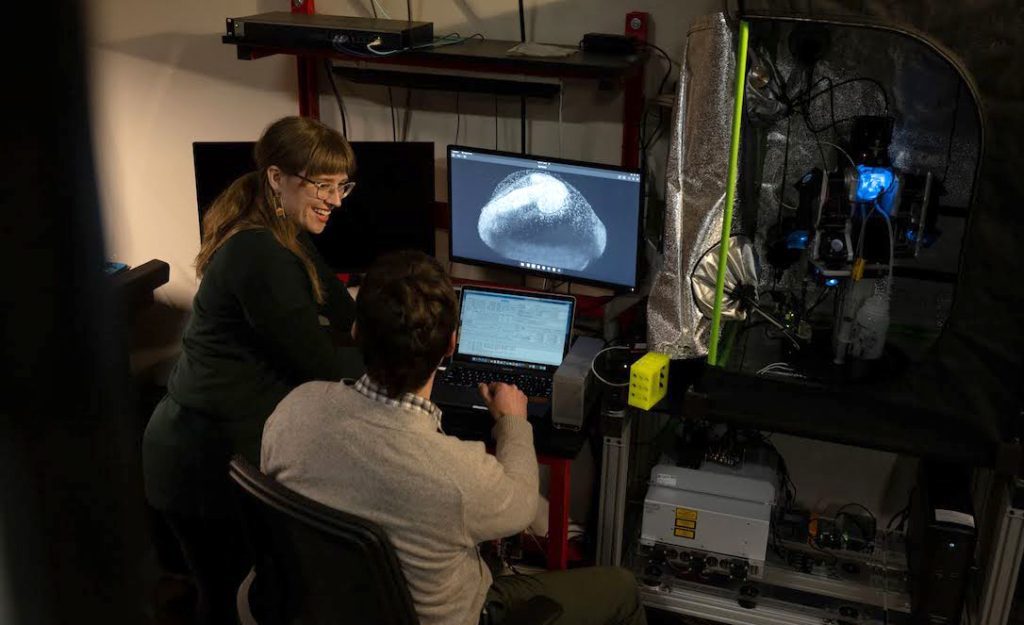12 Sep Morgridge Postdoctoral Fellow receives Simons Foundation award to support her future research

Morgridge Postdoctoral Fellow Liz Haynes discusses zebrafish embryo imaging with a collaborator in the FabLab.
The path from postdoctoral scientist to faculty member can be difficult to navigate, and individuals from underrepresented backgrounds can face even more barriers along the way.
For Liz Haynes, a Morgridge Postdoctoral Fellow, that career path will now be supported by a prestigious independence award from the Simons Foundation. The Simons Foundation supports early-career scientists in math and basic science, providing a runway to increase the representation of individuals historically underrepresented in the sciences.
Haynes, who is a first-generation college student, was named one of three scientists named today (Sept. 12, 2023) as Transition to Independence (TTI) Fellow in the Simons Collaboration on Plasticity and the Aging Brain (SCPAB)
Haynes works in the field of neuroscience and will receive two years of financial support and professional development resources during her fellowship and faculty job search, followed by an additional $600,000 when she secures a tenure-track position.
Haynes is a cell biologist working with Morgridge Investigator Kevin Eliceiri and UW–Madison Assistant Professor Tyler Ulland on the role of the microglia, the brain’s innate immune cells, in aging and disease.
She previously worked with Department of Integrative Biology professor Mary Halloran on neurodevelopment and neurodegenerative disease.
Throughout her work, Haynes has relied on the model organism zebrafish, a freshwater fish that shares a striking amount of genetic similarity with humans and has amazing regenerative capacity.



